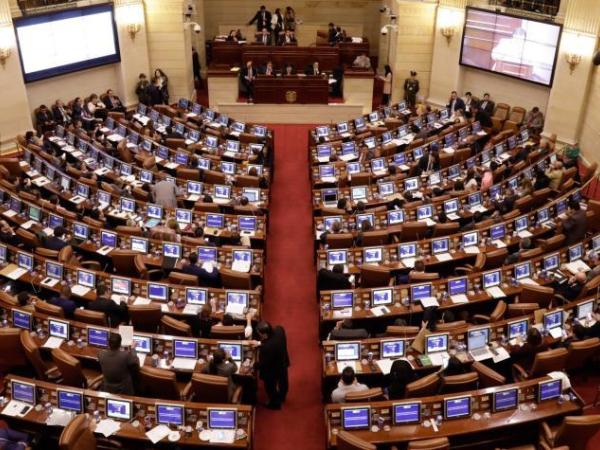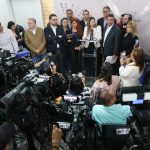After several weeks of discussion between the coordinators and speakers of the National Development Plan 2022-2026the paper for the first debate arrived yesterday before the economic commissions of the Congress of the republicwhere he began his discussion and also his subsequent vote.
In these weeks, the project received close to 3,000 proposals in the Congressand the articles arrived with 358 points to the third and fourth commissions of Senate and Chamber. Compared to the original project, the elimination of 22 articles was proposed, while 58 new articles were added.
(Gas resource data leads Minenergía to new motion).
Among the eliminated articles is 20, which suggested that the ICA would go to Ministry of EnvironmentArticle 31 was also eliminated, which contained provisions regarding the organization of the cadastral managementbut this was also contained in another point of the articles.
After a couple of hours of discussion in the morning, and the denial of a file proposal filed by the Democratic Center, the vote on the project began around noon, and advanced in blocks. At the close of this edition, 303 articles of the project had been approved, that is, 84% of the paper.
In principle, a block of 64 articles that came without a proposal in the paper was approved and after that a block of 218 articles that had a proposal were voted on and remained as records for debate in plenary. In addition, the elimination of 21 articles was voted. That is, 303 articles of the paper were voted on.
The commissions agreed to continue with the discussion of the project today.
(94% of Colombians defend free choice to contribute to a pension).
Among the 58 new points that the presentation brought up, the extraordinary powers that the President would receive to reform various regulatory aspects stand out in particular. Article 301 grants powers for six months to the president to issue regulations with the force of law to modify the Families and Youth in Action programs, and incorporate them into the Transfer System created by the Development Plan.
Article 302 does the same, but for the recovery of the San Juan de Dios Hospital and among other powers, the project includes provisions for the President to create a public entity attached to the Ministry of Transportation to promote the construction, improvement and conservation of local roads and also for the creation of a National Agency for Science, Technology and Innovation.
(This was the first day of debate of the PND in economic commissions).
In addition to this, the paper establishes that the president will also have extraordinary powers for everything related to the Bicentennial Groupthe state financial holding with which they want to promote the so-called popular economy.
And an element that had been left out of the filed project was reincorporated into the text, but it was in the drafts: the extraordinary power for the President to create a business group for the electricity sector, integrating the companies behind the main power plants from the country. These items were excluded from the blocks and will be put to a vote today.
Another of the new points that remained in the plan is in article 311, which says that the Agustín Codazzi Geographic Institute (IGAC) it will adopt methodologies and models for mass updating of lagging cadastral values, to carry out, for a single time, an automatic adjustment of the cadastral appraisals of all the properties in the country.
(81% of Colombians prefer an individual savings fund for a pension).
Another of the new proposals has to do with the Dane. Article 319 establishes that the entity “will develop and publish new measures of inequality around land, property, financial asset ownership and wealth in the country”.
Article 324 further establishes that “all investments and programs planned to be carried out in the regions must hire at least 50% of local labor”, as long as there are personnel with these capabilities in the regions.
Article 330, on the other hand, proposes the creation of special mining districts for productive diversification, for “promote the associativity between miners and small-scale miners, as well as industrialization from strategic minerals”.
(Labor reform would put at risk 80 thousand jobs with applications).
Article 333 talks about making the investments of network operators that have met the quality of service goals more flexible and granting longer terms to execute said investment plans. These conditions will be defined by the energy and gas regulation commission (CREG).
In addition, article 337 indicates that the Nation may allocate additional resources to the budgetary base of operation of the Institutions of educationPublic Higher ion, subject to budget availability.
LAURA LUCIA BECERRA ELEJALDE
Journalist Portfolio
















